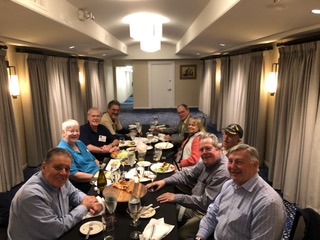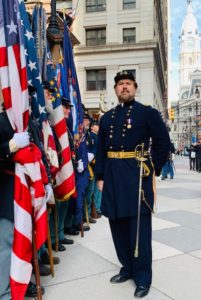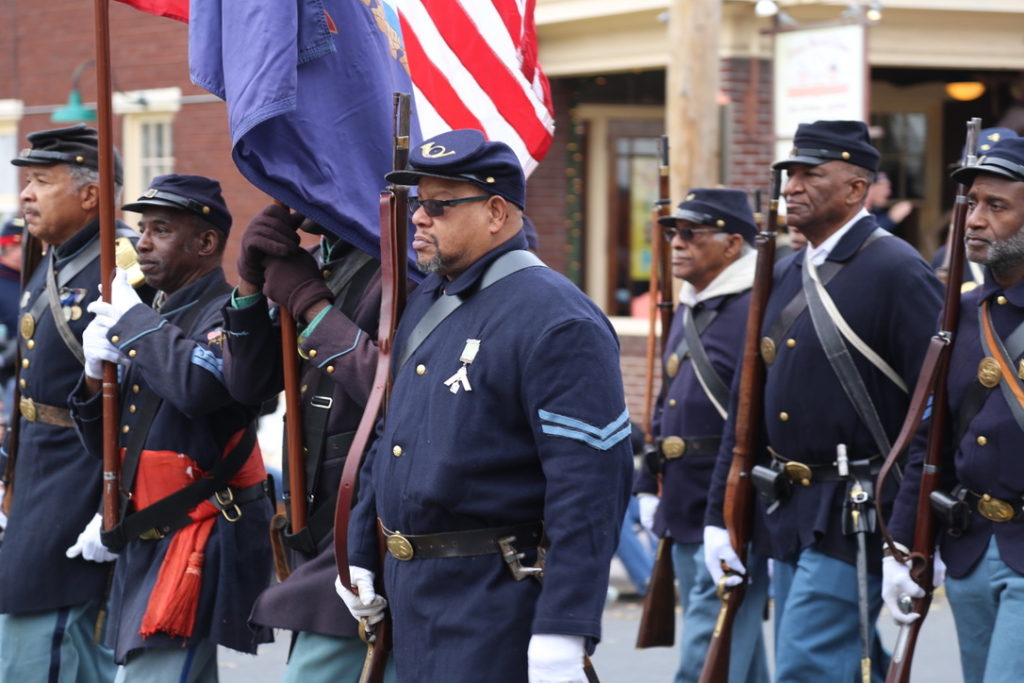
A few days before Mike Movius sat down to talk with the BGES Blog, he had cataracts surgery. The prognosis? The procedure was a success, and he is on his way to a full recovery.
Movius speaks with similar optimism when it comes to the CWRT Congress and Civil War roundtables. But there is a note of caution. He knows that some changes have to be made to ensure sustainability first, and growth after that.

A fourth-generation native of Washington State, Movius discovered his love of Civil War history in the 8th grade. That’s when he was introduced to a paperback version of Mathew Brady’s photography. “It was pretty intense stuff,” he recalls.
And it sparked Movius to learn more. A good friend suggested he read Confederates in the Attic, and his passion grew. Over the years, he found that the Civil War pulled him in many different directions. “It was nothing in particular, but everything in general,” he explains. “All the battles, the monetary policy, the slavery issue, and, of course, all the fascinating biographies—it all interested me.”
How to Start a Civil War Roundtable
His study of the Civil War led Movius to a roundtable group in Seattle. He eventually would be named president of the Puget Sound CWRT. First, however, he read the Civil War Roundtable Handbook by Matt Borowick. Movius embraced the idea of the CWRT Congress and began to solicit others.
“That was the start of the new CWRT Congress,” he says. “While the 1975 version was focused on seeking CWRT support of battlefield preservation, the new version seeks to preserve CWRTs themselves. Currently, the CWRT Congress is in the process of becoming a registered 501(c)(3).”
The Civil War roundtable phenomenon is actually relatively new to the U.S. The first was held in 1941 by the Civil War Round Table of Chicago. The idea took a few years to catch on, but similar groups later formed in Milwaukee and then Atlanta. Hundreds more followed. Unfortunately, nearly 70 Civil War roundtables have closed their doors in recent years. Others are searching for ways to strengthen their ranks. The CWRT Congress was created to help them survive and thrive.
“We’re not an umbrella organization,” Movius explains. “Rather, we’re more of a consultative body. We offer time-tested tools to help CWRTs expand their membership, reduce operating costs, have effective governance structures, develop meaningful partnerships, and raise sufficient funds for quality programs and historic preservation.”
Annual Congress 2020

The centerpiece of that effort is the group’s annual Congress. The 2020 version will take place in Philadelphia between September 18 and 20. “We’ll concentrate on success stories of CWRTs in a variety of areas,” says Movius. “We’ll also hold breakout sessions on topics such as developing effective communications, grant writing, and organizational culture.
The Friday evening reception will feature speaker Andy Waskie, who will portray George Gordon Meade as he tells the story of Philadelphia’s role in the Civil War. Saturday dinner speaker Paul Kahan will talk about how political intrigue involving Pennsylvanians affected the war and its outcome. Sunday will feature a guided tour of the Union League, followed by the chance to photograph the statuary located around City Hall of prominent Philadelphians during the Civil War.
“We’ll end with lunch at the Reading Terminal Market,” Movius says.
The CWRT Challenge
Movius admits that maintaining the relevance of CWRTs is a complex task, as each group has its own challenges and opportunities. That’s part of the reason for the CWRT Congress annual event.
“We need to talk more about the problems facing local groups and how to solve them,” Movius says. “Most pressing is attracting new and younger members. It’s the same challenge many other organizations face. In our case, we also focus on attracting women and people of color. It’s important to tell the stories of how their experiences in the Civil War helped shape America.”
How do you do that? One way is making the Civil War more accessible. “Add civil rights, reconstruction, and emancipation to our discussions,” says Movius. “Celebrate Black History Month and Asian Pacific American Month. Reach out to public schools and youth organizations.”
Strategic partnerships also are important. For example, the Civil War Institute is a partner for this year’s annual Congress. Movius has found another supporter in the BGES. “I met Len and other board members at our 2019 Congress in St. Louis,” he says. “They were very gracious and interested in partnering with us to tell America’s story.”
Ultimately, Movius believes that CWRTs must become more inclusive. “Too many CWRTs are focused internally,” he says. “We need to look outside our ranks if we want to sustain what we have.”

